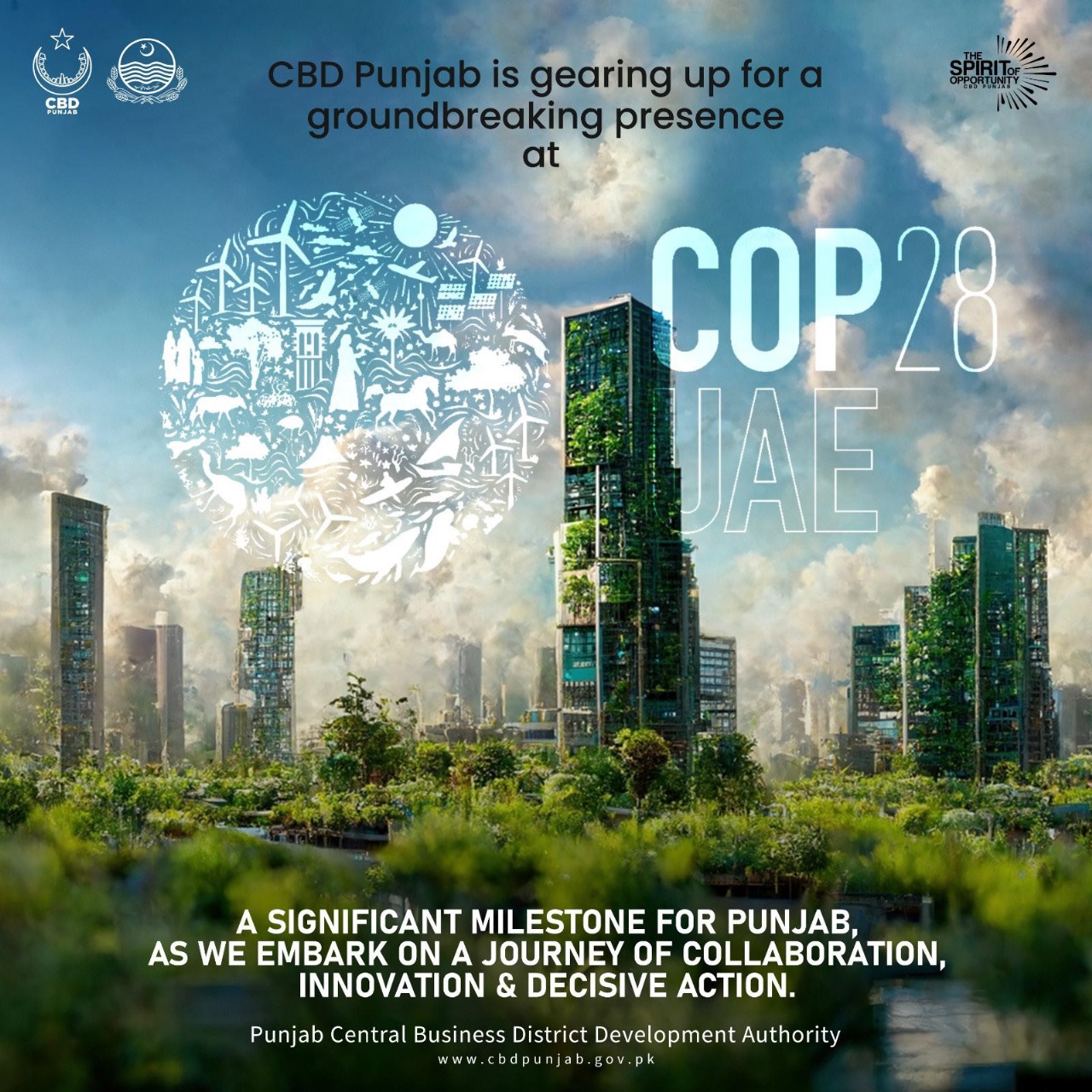13-Dec-2023

COP28, the 28th annual United Nations Climate Change Conference, is a critical platform for nations to discuss and negotiate actions to address climate change and assess progress under the Paris Agreement. This landmark accord aims to limit global temperature increases to well below 2 degrees Celsius above pre-industrial levels by 2100, with a more ambitious target of 1.5 degrees Celsius. It relies on a system of nationally determined contributions (NDCs), where countries commit to their own goals for achieving these targets. COP28 is expected to be a pivotal conference in evaluating the achievements under the Paris Agreement and determining the future action plan. Punjab, a province in Pakistan, is actively contributing to climate action and sustainable development, as demonstrated by its engagement in global initiatives like COP28. The Government of Punjab has initiated various eco-friendly projects, including CBD Punjab, with the goal of attracting investments and stimulating economic activity. These initiatives align with the objectives of the Paris Agreement, aiming to mitigate environmental degradation, improve environmental quality, and promote sustainable practices through policy implementations, green development, LEED certification, smart city strategies, and sustainable infrastructure development. Punjab's efforts showcase its commitment to global climate action and sustainable development. CBD Punjab, spearheaded by the Government of Punjab, is a modern, state-of-the-art project designed to attract foreign and local investors and generate economic activity in Lahore. The Punjab Central Business District Development Authority (PCBDDA) aims to address environmental degradation while enhancing environmental quality through a range of initiatives. These initiatives include policy implementations, green development, LEED certification, a smart city approach, tree plantation, rainwater harvesting, wastewater treatment, and energy generation through renewable resources. CBD Punjab has a sustainability-driven focus, incorporating eco-friendly features to reduce carbon emissions and promote green practices. The project includes underground parking and parking plazas at connecting nodes to encourage pedestrian footfall and reduce carbon emissions, along with on-road parking spots and EV charging points for electric vehicles (EVs). A tree plantation program aims to plant 14,500 trees, with 12,500 trees already planted along specific roads. Furthermore, 33% of the land is dedicated to open areas, surpassing the city's standard of 15%. CBD Punjab has also introduced the innovative "Blue Road" concept to Lahore, providing a sustainable alternative to traditional asphalt roads by incorporating heat absorption and energy-conserving features. Rainwater harvesting systems, including a rainwater harvesting tank at Saint Mary's Park and harvesting channels running through the CBD Punjab Quaid District, have been integrated into the project. Additionally, the project emphasizes dedicated cycle lanes, wastewater treatment strategies in compliance with the Water and Sanitation Agency (WASA) guidelines, and adherence to LEED certification standards for sustainable building construction. In summary, CBD Punjab's efforts align with the goals of the Paris Agreement and contribute to global transformative climate action.